News
-
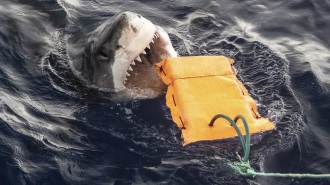 Materials Science
Materials ScienceNew wetsuit designs offer a layer of protection against shark bites
By weaving Kevlar or polyethylene nanofibers into standard neoprene in wetsuits, researchers found ways to limit injury during rare encounters with sharks.
By Carly Kay -
 Climate
ClimateCoral collapse signals Earth’s first climate tipping point
The global die-off of coral reefs signals a critical shift in Earth’s climate system with global environmental consequences along with economic ones.
- Astronomy
Astronomers saw a rogue planet going through a rapid growth spurt
The growth spurt hints that the free-floating object evolves like a star, providing clues about rogue planets’ mysterious origins.
-
 Neuroscience
NeuroscienceBrain scans reveal where taste and smell become flavor
The findings show the insula fuses taste and certain smells into the sensation of flavor.
-
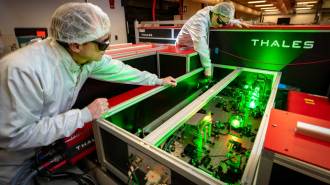 Particle Physics
Particle PhysicsLasers made muon beams, no massive accelerator needed
The advance hints at the possibility of portable muon-making devices that could help peer through solid materials for hidden contraband.
-
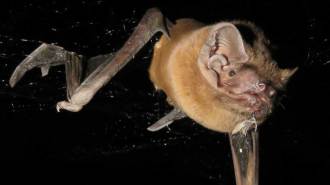 Animals
AnimalsMic’d bats reveal midnight songbird attacks
Sensor data reveal greater noctule bats chasing, catching and chewing on birds during high-altitude, nighttime hunts.
-
 Animals
AnimalsToy-obsessed dogs give clues to addictive behaviors
Some dogs love playing with toys so intensely they can’t stop—offering scientists a window into behavioral addictions.
-
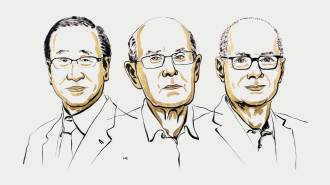 Chemistry
ChemistryChemistry that works like Hermione’s magic handbag wins a 2025 chemistry Nobel
Richard Robson, Susumu Kitagawa and Omar Yaghi developed metal-organic frameworks, structures that can collect water from air, capture CO₂ and more.
By Meghan Rosen -
 Artificial Intelligence
Artificial IntelligenceBiased online images train AI bots to see women as younger, less experienced
Age and gender bias in online images feeds into AI tools, revealing stereotypes shaping digital systems and hiring algorithms, researchers report.
By Sujata Gupta -
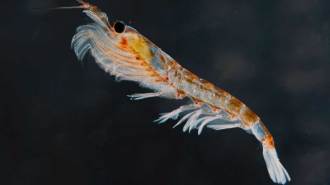 Climate
ClimateAntarctic krill eject more food when it’s contaminated with plastic
Antarctic krill don’t just sequester carbon in their poop; they also make carbon-rich pellets out of leftovers. But microplastics may throw a wrench in the works.
-
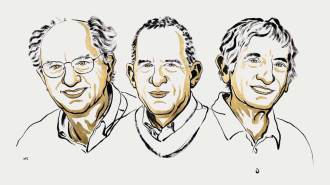 Quantum Physics
Quantum PhysicsDiscoveries that enabled quantum computers win the Nobel Prize in physics
In the 1980s, John Clarke, Michel Devoret and John Martinis demonstrated quantum effects in an electric circuit, an advance that underlies today’s quantum computers.
- Animals
What the longest woolly rhino horn tells us about the beasts’ biology
A nearly 20,000-year-old woolly rhino horn reveals the extinct herbivores lived as long as modern-day rhinos, despite harsher Ice Age conditions.
By Jake Buehler